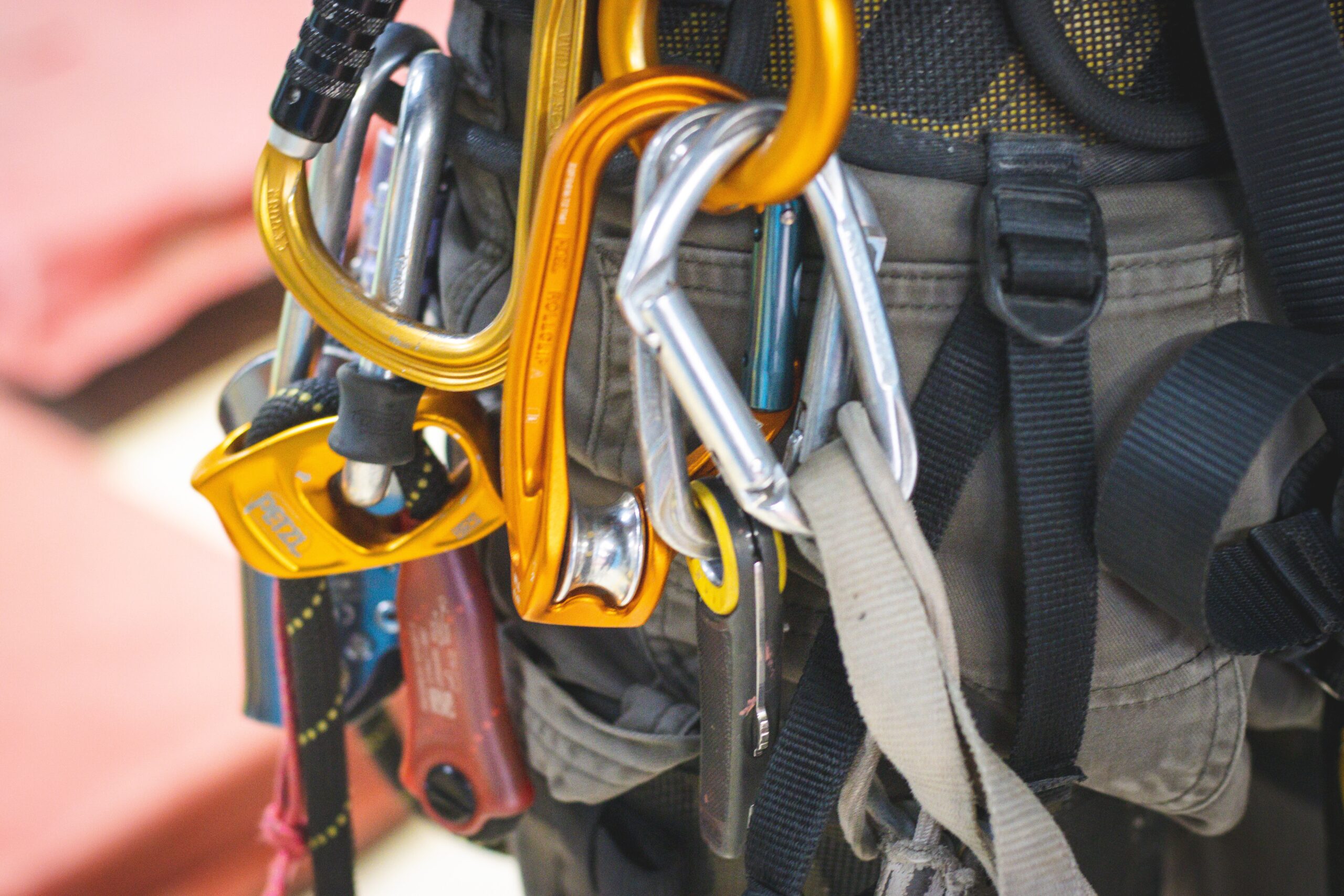
Imagine this scenario: you’re all geared up for your next climbing adventure, feeling the thrilling rush of adrenaline. But before you ascend those towering cliffs, there’s one crucial thing you need to ensure – that your climbing harness fits properly. Your safety and comfort rely on it, after all. But how do you know if it fits just right? In this article, we’ll guide you through some simple yet vital indicators that will help you determine if your climbing harness is the perfect fit for your daring escapades. So, let’s strap in and explore the world of secure climbing gear!
Checking the Fit of Your Climbing Harness
Finding the perfect climbing harness is essential for safety and comfort during your climbing adventures. Your harness should fit snugly around your waist and legs, providing security while allowing for freedom of movement. In this article, we will guide you through the steps to ensure the proper fit of your climbing harness.
Ensuring Proper Waist Fit
To begin, put on your harness and position it around your waist. The waist belt should sit above your hips and snugly around your waist. Ensure that the harness is not too tight to restrict your breathing or too loose to risk slipping off during a fall. A good rule of thumb is to be able to fit two fingers comfortably between the waist belt and your body.
Checking Leg Loops
Next, it’s important to check the fit of the leg loops. Leg loops should fit snugly but not so tight that they cause discomfort or restrict blood circulation. Adjust the leg loops to achieve a comfortable fit, ensuring they are even on both sides. Start with the harness straps at their loosest setting and tighten them as needed.

Adjusting the Buckles
Properly adjusting the buckles on your harness is crucial for a secure fit. The waist belt buckle should be centered and fastened securely, ensuring there are no twists in the webbing. The leg loop buckles should be tightened evenly to avoid any imbalance.
Evaluating the Rise
The rise of your climbing harness refers to the distance between the waist belt and the leg loops. It’s important to assess if the rise is suitable for your body type. The rise should provide a comfortable fit without feeling too high on your torso or uncomfortably low. Experiment with different harness designs to find the rise that best suits your body shape.

Assessing the Comfort
Comfort is a critical factor when choosing a climbing harness. While trying on a harness, pay attention to any pressure points or areas that cause discomfort. Check if the padding is sufficient and if there are any areas that rub or chafe. Remember, a harness that feels comfortable in the store may feel different after an extended period of use, so it’s crucial to consider long-term comfort as well.
Testing Mobility
A well-fitted climbing harness should not hinder your mobility. Perform various movements, such as stretching, bending, and squatting, to test the harness’s range of motion. Ensure that the harness allows you to move your legs freely and does not restrict your ability to climb comfortably.

Checking for Excessive Movement
While a climbing harness needs to provide freedom of movement, it should not allow excessive movement or sagging. After fitting the harness, move around and simulate climbing movements to check for any unwanted shifting or excessive play. A properly fitting harness should stay securely in place without sliding or twisting during movement.
Considering Body Type
It’s important to consider your body type when selecting a climbing harness. Different harnesses are designed to accommodate various body shapes and sizes. Some harnesses are tailored for men, women, or specific body proportions. Take the time to find a harness that is designed to fit your body type to ensure the best fit and overall comfort.

Seeking Expert Advice
If you are unsure about the fit of your climbing harness, or if you have specific concerns due to your body type or any other factors, it’s always advisable to seek expert advice. Visit a reputable climbing shop or consult with experienced climbers who can provide guidance and recommendations based on your individual needs.
Inspecting for Signs of Wear
Before each climb, inspect your harness for any signs of wear or damage. Look for frayed threads, worn-out webbing, or loose stitching. Pay extra attention to the attachment points, buckles, and any areas subject to high stress. If you notice any signs of wear, it’s essential to replace your harness to ensure your safety during climbing.
In conclusion, properly fitting a climbing harness is crucial for your safety and comfort while climbing. By following these steps and considering your body type and individual needs, you can find the perfect harness that provides a secure fit and allows you to enjoy your climbing experiences to the fullest. Remember, when in doubt, seek advice from professionals who can help ensure that your climbing harness is fitted properly for your specific needs. Happy climbing!

